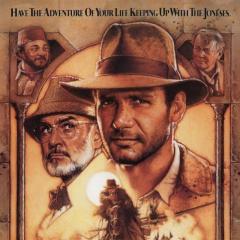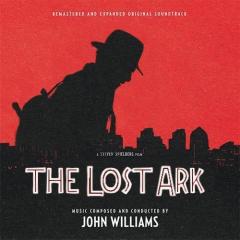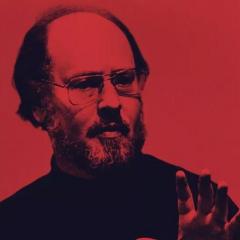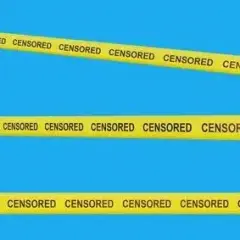
oierem
-
Posts
533 -
Joined
-
Last visited
Reputation Activity
-
 oierem reacted to SteveMc in What the blogs say vs. what actual Classical Musicians actually say.
oierem reacted to SteveMc in What the blogs say vs. what actual Classical Musicians actually say.
Film music by itself is not necessarily classical music, just as a song is not necessarily a lieder. It depends on composer and intent. Who is the composer? Did he or she have formal or informal training in the classical tradition? If yes, in writing the score, did he or she have a kind of artistic intent that transcends the film?
Sometimes the distinction is obvious. Folks like Vangelis and Zimmer have artistic intentions in their scores, but their work is rooted more in popular music than classical. Korngold and Rozsa and Herrmann were classical composers, and all their scores are clear compositions. Sometimes the distinction can be a bit more subjective. Steiner had classical training, but his scoring style was bit more in the direction of light music. But, then, someone could dismiss Vivaldi as light music and I'd find that very wrong.
What of John Williams?
You can draw a clear line connecting late 19th century classical masters to him. Mahler and Strauss to Korngold to Williams. Rimsky-Korsakov to Glazunov to Tiomkin to Williams. Add to that a healthy does of native influence from American Jazz. He studied piano with Rosina Lhévinne, who encouraged him to be a composer and then studied with Castelnuovo-Tedesco. This is what gives Williams's technique such a compelling quality and the ability to be almost endlessly studied or analyzed.
But, unlike a good deal of 20th century classical music, Williams's music is overt. Which is to say it's main point is often obvious and accessible. This is a consequence of much of his music being written for films, which is to say, for patrons and an audience that often demands this. This leads to critiques that Williams's music is thus shallow and subservient, that it represents not the true vision of the artist, but simply reflects the vision of others. Never mind that obvious and accessible characterized much of the pre-20th century artform, this is declared to be backwards emphasis that further proves the essential point, which is that John Williams is not a classical composer, and nor is any of his music truly classical, concert or otherwise.
But this is an unfair academic stance that ignores the essential nature of the art form. For much of its existence, classical music was written for others. Wealthy patrons, royalty, aristocrats, superstar performers, a demanding opera industry. And yet, a great deal of this music is still considered artistic works of integrity and merit, the composers lauded as masters, even if they were partly doing the bidding of others. Why? Because the music is judged on its own merit, these factors included in the estimation, but the artistic intention snuck in by the composer also taken into account. Why can't John Williams be accorded the same consideration? Those who do judge him by this older standard rather than the narrower academic art cannot be for all crowd often deem him worthy. There can be honest negative opinions about his work, how it might be too on the nose most of the time, maybe too bombastic, predictable, or how he may not have the greatest structural mastery. But before you can have an honest opinion about John Williams's music, you need to acknowledge that it is classical, since it is rooted in that tradition, even if it is a branch of that tradition a certain school has declared anathema. That might be changing, as I will address soon.
First, take the example of Bach. Bach is generally accepted to be one of the all time greats. For much of his lifetime, he was considered a throwback, out of date. For much of his lifetime, he was a hireling. His greatest works were written for others, often on their instructions and with their interference. That he was able to thrive in this environment and throw in the mastery and musical complexity that he did is amazing, and the greatest testament to his genius. Towards the end of his life, he began to have a little more recognition, but still more as a politely respected curiosity than anything. After his death, the establishment overlooked him. Only the geniuses paid him full attention. Finally, when he was dead long enough for him to no longer be passé, he was rediscovered and adored.
Williams is not a 1-1 comparison here, he's not in Bach's tier. But, we see similar patterns repeating themselves.
Which brings me to my next and final point. Where exactly does John Williams fit into the classical tradition? For some, the medium for which he most often writes and the style he uses marks him a member of a breakaway blasphemous sect that is not fit to be called classical, never mind that it has more in common in those respects to what was classical for 200 years than the modernist take. But this is in fact the outdated view, rooted in a roughly 1920s-1960s modernist stance. Since then, classical music went through a bit of a revolution. Postmodernism. For a point of reference, take postmodernism in architecture. Roughly, you could divide it into three threads. Overall a rejection of the formality and perceived coldness of various forms of modernism, Postmodern Architecture offered an alternative. One thread went for an expressionistic flair, new shapes, unusual forms, shock value even. This thread felt like a logical extension of modernism in a way. The equivalent in music would be Ligeti and composers like him. The second thread I like to call Pop-Postmodernism. Color, vibrancy, familiar or vernacular forms with a twist. Musical equivalents: Glass, Adams, perhaps Morricone. Finally, a certain neo-traditionalism. Architects using traditional principles and ornamentation on newer forms, ranging from skyscrapers done in a pseudo- Flemish church style to buildings almost exactly 18th century on the outside, but completely modern internally. Several post-modern composers have done similar things. Rouse comes to mind. So does Williams. I see his approach as most definitely rooted in postmodernism, his voice one of the most important ones of the movement. You may not like what is has to say, but would anyone try to call a traditionalist work by a noted architect not architecture? Perhaps there are some folks who would, but it is rather absurd on its face.
There, this should be pretty much the final word on the matter. I would post it on TalkClassical, but I've forgotten my password and can't really be bothered.
-
 oierem reacted to Datameister in What the blogs say vs. what actual Classical Musicians actually say.
oierem reacted to Datameister in What the blogs say vs. what actual Classical Musicians actually say.
Meh, life's too short to stress over people who judge others' tastes and interests. Pick any given genre, composer, ensemble, or whatever, and there will be thousands of people out there (at least) who will turn up their noses. Doesn't change the enjoyment we get out of the music. Best we can do is decide not to act like that when it comes to art that's outside our own tastes.
-
 oierem reacted to ragoz350 in RESTORED ISOLATED SCORE: Star Wars Saga (Unused Music Restored To Picture)
oierem reacted to ragoz350 in RESTORED ISOLATED SCORE: Star Wars Saga (Unused Music Restored To Picture)
I tried to edit the cues 7M1 Dooku vs Obi-Wan and 7M2 Yoda Strikes Back, according to the sheet score. Of course, it's hardly possible to completely restore the score with the material that remained in the film (besides, it's not a fact that everything was recorded in the same way as written in the sheets), but it's possible to get a rough idea. I also "mockuped" a little missing fragment at 1:25-:35 and 1:38-:46.
Perhaps the most interesting thing here is that, according to the original intention, JW in 7M1 cue used active percussion rhythms only for Anakin's fighting, while Obi-Wan fights to the quiet rubbing the gong and timpani hits.
Also I included a 7M3 Finale here, along with my mockup of the one original piece, instead of insert with Imperial march (and also ultralittle fragment at 5:34-:37).
Again, thanks to @Manakin Skywalker for extracted music from the movie.
-
 oierem reacted to mrbellamy in Harry Potter 7CD Collection - MUSIC discussion
oierem reacted to mrbellamy in Harry Potter 7CD Collection - MUSIC discussion
I think the amount of references to the first score in COS could have been subtracted by like 25%. I do appreciate how much mileage he got out of Hedwig's Theme for motivic/thematic associations in both films, not even necessarily because of specific textual meaning which I think gets stretched a bit far by those who love analysis more than I, but just for its own sake it's delightful. A quote like "Wand of the Phoenix" for Hermione's petrification, though, is neither here nor there to me, and a straight rip like "Cornish Pixies" is just distracting. I think there's a very fine line between establishing a musical world and just recycling it and Chamber wobbles on that tightrope a handful of times.
The Azkaban issue, I always just feel like there's no way to know how that score would have fit within eight HP scores by John Williams. The main thing is there's no Voldemort so I can't imagine JW wouldn't have brought his material back in 4. Plus things like Myrtle, and I'm sure we all hoped the Past theme would become part of the heart of the series alongside the family/friendship themes, instead of just the heart of one installment. It would just depend how he moved forward with his approach. Maybe he would have eventually landed on a revised Harry Potter voice by the end that merged some of those medieval colors in with those original themes and made it feel like less of an anomaly and more like a detour relevant to those first two. Or maybe it would have remained the weird one while 1-2 felt unified with 4-8. Or maybe we'd still be lamenting that he and the directors continued to forget all about the first scores. No idea.
-
 oierem reacted to Incanus in Evolution of the Theme for Jurassic Park
oierem reacted to Incanus in Evolution of the Theme for Jurassic Park
The "official" concert version is the one found on the Williams on Williams: The Classic Spielberg Scores album, which I think is also the signature edition available for performance.
On the OST the Theme from Jurassic Park is just the cue Dinosaurs (from Journey to the Island) with a new horn intro and harp ending edited into it, creating a new independent thematic suite of the hymn theme for the soundtrack album.
The track called End Credits on the OST is actually just an edit of the end half of the actual end credits suite Welcome to Jurassic Park with the island fanfare theme, piano rendition of the dinosaurs theme and ending with the ominous 4-note Carnivore motif. I think Williams sort of meant this as the suite of the island fanfare.
The "official" suite is pulled together from several elements from the score:
1) The horn opening of the Theme from Jurassic Park and the dinosaurs hymn theme,
2) then it goes to a bit of material from Welcome to Jurassic Park (a development of the bridging string melody) and
3) then launches into the island fanfare in the style of the Welcome to Jurassic Park but ends with the triumphant fanfare that closes T-Rex Rescue and Finale.
The Lost World end credits suite contains a straight re-recording of the "official" concert suite and Williams does indeed seem to favour a significantly faster reading of the opening dinosaurs hymn theme (similarly as on the Williams on Williams album) compared to the film version.
-
 oierem reacted to Datameister in Scores with best thematic/leitmotif handling ever (Minus LOTR and SW)
oierem reacted to Datameister in Scores with best thematic/leitmotif handling ever (Minus LOTR and SW)
Best use of leitmotif I've heard in television is LOST. Giacchino developed quite an extensive catalog of themes for characters, ideas, and locations.
-
 oierem reacted to crumbs in Fantastic Beasts And Where To Find Them 5-film series
oierem reacted to crumbs in Fantastic Beasts And Where To Find Them 5-film series
Then why on earth would you plan a 5-film series starring a Magizoologist as the protagonist and title the franchise, "Fantastic Beasts"?
It's like making a film called "Dinosaur Land" with a paleontologist as the lead character, then setting it during 1930's Germany and exploring Hitler's rise to power.
Actually, it's exactly the issue with this series! It has no idea what it wants to be, in the same way Peter Jackson couldn't decide if his Hobbit films were about the titular Hobbit, or all the other extraneous crap he focused on instead.
Hence the terminology Bilbo'd, @Nick1066 -- Bilbo spends the majority of that third film peering around people's waists, as if to remind audiences, "oh yeah, he's the protagonist."
-
 oierem got a reaction from crumbs in Fantastic Beasts And Where To Find Them 5-film series
oierem got a reaction from crumbs in Fantastic Beasts And Where To Find Them 5-film series
There are multiple problems with the Fantastic Beast franchise, but the most important of all, is that there doesn't seem to be any real need for its existence.
It's a typical product of studios/producers/authors not knowing when to end something, and wanting to milk the cow as much as possible.
But the fanbase is to blame as well: fans always want more, more sequels, more spin-offs.
As Dumbledore says in one of the books, humans tend to want things that are worst for them.
I always defend an artist when he/she decides that it's time for a series to end. And I'm really glad that Rowling never decided to write an 8th Harry Potter book at least!
-
 oierem reacted to TSMefford in Fantastic Beasts And Where To Find Them 5-film series
oierem reacted to TSMefford in Fantastic Beasts And Where To Find Them 5-film series
Personally, I am not remotely interested in Grindlewald Vs Dumbledore. I am way more interested in the four from the first film and the beasts. While I agree with you @bollemannekethat it does feel like two different stories, I disagree that Yates is a bad director and that overall the beasts or Newt are the problem. I think a lot of the issues lie with JKR and to an extent this need to make Fantastic Beasts another Franchise that has to tick off some boxes. As in:
We have to have a big overarching name to the franchise: Fantastic Beasts. This hurts the entire series, because now they all have to involve the beasts somehow. We have to have a consistent main hero character: Newt. Mistake #2. Not that Newt is a bad main character, but he's not the right main character for this series about Grindlewald's rise to power. The first film isn't necessarily the issue. I actually very much like the first one. I think there is a much better focus to the story. I sort of view Fantastic Beasts as this adventure that is going on in the midst of a war. Yeah, the war is there and it's brewing in the background and it affects the characters off and on, but it's not the main part of the story. I was more in the mood for a fun adventure film about tracking down Beasts and that is what I got, with a taste of the war part.
The second film, however, has a very split focus. Because of the Franchise checkboxes I mentioned above, I feel like they're now forcing themselves to shoehorn in beasts and Newt feels far more out of place in the CoG story. I think it's at this point where the problems start. The beasts are not an issue in the first film, because it's about Newt and his quest for his escaped Beasts at it's core.
The way I would've approached this would've been anthology films of some kind. Where we can tell stories of what is going on during this war and Grindlewald's rise to power. You don't have to have a consistent cast. The second film can just be called Crimes of Grindlewald. Maybe Newt shows up again when it makes sense down the line.
Alternatively, make some fun adventure films about the main four and ditch the Grindlewald stuff. No need to overcomplicate it. Something here is just not meshing well.
-
 oierem reacted to mrbellamy in Fantastic Beasts And Where To Find Them 5-film series
oierem reacted to mrbellamy in Fantastic Beasts And Where To Find Them 5-film series
You could watch it as a curio. "Aw too bad they didn't make more!"
The bakery is a very nice little ending on its own, the little hint that Jacob might remember. Ignore the Grindelwald stuff and the foursome has a story that stands on its own.
-
 oierem reacted to Nick1Ø66 in John Williams returns for Indiana Jones 5
oierem reacted to Nick1Ø66 in John Williams returns for Indiana Jones 5
Either that or Williams has “read” the script like I tell people I’ve read Proust.
-
 oierem reacted to Bellosh in Favorite Indiana Jones trek/map cues
oierem reacted to Bellosh in Favorite Indiana Jones trek/map cues
My goodness you're right. Fucking hell.
I added it.
-
 oierem got a reaction from Bellosh in Favorite Indiana Jones trek/map cues
oierem got a reaction from Bellosh in Favorite Indiana Jones trek/map cues
You're missing the thrid map cue of Raiders: Indy on the submarine.
-
 oierem got a reaction from SteveMc in Hypothetical: Stranded on a tropical island for 5 years with only 5 JW tracks. Which do you choose?
oierem got a reaction from SteveMc in Hypothetical: Stranded on a tropical island for 5 years with only 5 JW tracks. Which do you choose?
Luthor's Luau. Over and over again.
-
 oierem got a reaction from Raiders of the SoundtrArk in Hypothetical: Stranded on a tropical island for 5 years with only 5 JW tracks. Which do you choose?
oierem got a reaction from Raiders of the SoundtrArk in Hypothetical: Stranded on a tropical island for 5 years with only 5 JW tracks. Which do you choose?
Luthor's Luau. Over and over again.
-
 oierem got a reaction from crumbs in Hypothetical: Stranded on a tropical island for 5 years with only 5 JW tracks. Which do you choose?
oierem got a reaction from crumbs in Hypothetical: Stranded on a tropical island for 5 years with only 5 JW tracks. Which do you choose?
Luthor's Luau. Over and over again.
-
 oierem got a reaction from Madmartigan JC in Hypothetical: Stranded on a tropical island for 5 years with only 5 JW tracks. Which do you choose?
oierem got a reaction from Madmartigan JC in Hypothetical: Stranded on a tropical island for 5 years with only 5 JW tracks. Which do you choose?
Luthor's Luau. Over and over again.
-
 oierem got a reaction from Jurassic Shark in Hypothetical: Stranded on a tropical island for 5 years with only 5 JW tracks. Which do you choose?
oierem got a reaction from Jurassic Shark in Hypothetical: Stranded on a tropical island for 5 years with only 5 JW tracks. Which do you choose?
Luthor's Luau. Over and over again.
-
 oierem got a reaction from DarthDementous in Star Wars IX The Rise of Skywalker (JJ Abrams 2019)
oierem got a reaction from DarthDementous in Star Wars IX The Rise of Skywalker (JJ Abrams 2019)
You misunderstood what I meant. I know that Lucas is lying when he says he had planned the whole thing beforehand (and about many other things, although calling him a "pathological liar" is too much, imho).
What I meant is that he says he had it planned because he thinks that's a better way of creating a trilogy than making it up as he goes. He lies because, from his perspective (and from the perspective of a lot of fans and viewers), not planning things out from the start is a mistake.
We will have to disagree about the importance of Lucas' contribution to Empire. I know how the process of creating that films went (as you do), yet I disagree about your interpretation of many things:
-About the genesis of the story: before Brackett's draft, there's Lucas' handwritten story treatment, in which the story of the film is already in place, and really close to the final film (so obviously, Brackett's draft could not be totally different).
-As far as I know, the initial story conferences were basically Lucas laying out the story for Brackett. Of course, she may have contributed to some degree, but Lucas had the story already in his mind (as his stoy treatment shows). If you read the transcriptions of the story conferences for Raiders of the Lost Ark, you can see how Lucas has the story in his mind... and then is reworked by the three of them.
-Kasdan came in after Lucas' draft (Lucas only wrote one draf for Empire), in summer 1978, and his three drafts have no substantial differences from Lucas'. Instead, I'd say his contributions to Jedi were much more significant, since they affected the structure of the film itself.
-Lucas was present on the set of Empire for two months (out of six), which is a third of principal photography. That's hardly "barely present". Although clearly, Kershner was the director of the film.
-About the edit: I have not read any documented evidence about Lucas and Kershner's supposed fight about the edit, and in any case, it doesn't add up. First, Lucas couldn't have been overruled by Kershner, because Lucas had the final cut right. Second, Lucas edited the first third of the film before Kershner started working on it, while Kershner was still filming. Third, Williams spotted the film in early November 1979, and recorded the music in late December. By that time, the picture was essentially locked in the final edit. Therefore, somehow Lucas and Kershner were able to have the film edited in just about two months! Were there disagreements? Of course. But as I said before, the whole story of Lucas being angry about Kershner's cut and trying to rework it... is not documented and isn't even logical. Lucas had every right to edit the film the way he wanted, period.
There are facts, and there are opinions. I think we both know enough about the facts. Based on them, we create our opinions, and our opinions differ. So be it. I don't think it's relevant for this discussion, anyway.
-
 oierem reacted to Jay in Temple of Doom Sanskrit Sacrifice/Sacrifice Sweetener/Drums
oierem reacted to Jay in Temple of Doom Sanskrit Sacrifice/Sacrifice Sweetener/Drums
Source music does indeed mean music that is supposed to be coming from a source the characters in the film could hear, it's also known as diegetic music.
Source music could be an existing piece of music that wasn't created specifically for the film, it could be something made specifically for the film but the composer of the score had no involvement with it, or it could be something the score composer recorded, typically at the same recording sessions as the film score.
For example, let's look at Jurassic Park. Early in the film when Nedry meets with Dodson to get the shaving cream can, playing in the background is "Las Gaviotas" by The Madacy Mariachi Band, an existing piece of music that was licensed to put in the film that JW had nothing to do with. But it's source music that is meant to be literally playing in that location and they would hear it. Later in the film, the "Mr. DNA" cartoon is scored with original music that the characters in the film hear (Hammond even mentions it, saying it will be replaced with different music when the park opens). This is also source music, but this time it was composed by John Williams and recorded at the same recording session as all the score cues.
Sometimes, the line between source music and score can be blurred, typically in a way where something starts as clear source music but as it goes on becomes more embellished than what the characters would actually hear as the movie continues to show other things.
For example, let's look at E.T. The Extra-Terrestrial. The cue "The Kiss" begins as an interpolation of a piece of Victor Young's score to "The Quiet Man", a 1952 film that is on the TV in the scene, so it is meant to be music the characters can hear. But as the cue goes on and Elliot kisses the girl, the cue morphs into original JW material using a theme from the ET score. So it's really both a source cue and a score cue all in one! Or for the most obvious example of this of all time, in "Close Encounters" the 5 note theme begins life as source music people around the world are hearing and repeating, and becomes the main theme of the film's score by the final cues.
In terms of JW and the source music he writes appearing on his albums... it depends! Typically, the original soundtrack albums he assembles at the time of the film's release don't have any, but there are exceptions. For example, his Star Wars OST had the Cantina Band cue, Close Encounters had "The Conversation", Return of the Jedi had "Lapti Nek", Empire of the Sun had "Suo Gan", etc etc. But these are exceptions, most of his OST albums don't have any.
Years later when an expanded release of one of his old scores happens, the new album's producer will typically get access to everything recorded for the film, which includes source music along with the film cues. Often when hearing the proposed new album JW might ask for some source music to be dropped; generally source music of a more dated styling gets axed, while source music or a more classical styling gets released.
For some examples:
Jaws - he approved the inclusion of the Joplin rag, waltzes, and marching band cues, but axed the source music from the opening beach scene Jaws 2 - he axed the beach rock source music that he composed Superman - Mike avoided this approval process by releasing all of it on the Superman II/III collection instead Dracula - None of the source music (classical music playing from an on-screen record player) was included Home Alone - all the christmas carols and other christmas-y source music was included, Harry's whistling of the wet bandit's theme was not Jurassic Park - the Mr DNA cue was included AI - the Mr Know It All music (arguably if source or not) was included, as was the Joseph Williams cue that was on the OST, but Joseph Williams' other two source cues and the instrumental backing of "I Only Have Eyes For You" JW recorded was not Harry Potter 1 - Hagrid's recorder cue was included, but with a "proper" ending and not the tail-off ending used in the film Harry Potter 3 - the courtyard recorded source cue was included, along with A Winter's Spell and all 3 Dufay Ensemble pieces, but the shawm source cue was not As you can see -- it all depends!
-
 oierem reacted to Datameister in Temple of Doom Sanskrit Sacrifice/Sacrifice Sweetener/Drums
oierem reacted to Datameister in Temple of Doom Sanskrit Sacrifice/Sacrifice Sweetener/Drums
The sacrifice music would all be considered source music, though it starts to intermingle with the score later on and even shows up as part of the score in the broken bridge cue. Source music is just any music that's part of the environment depicted in the film, i.e. music the characters can hear too. Doesn't matter whether it was written by the score composer or not.
-
 oierem reacted to crumbs in When you listen to Temple of Doom, do you skip “Anything Goes” ?
oierem reacted to crumbs in When you listen to Temple of Doom, do you skip “Anything Goes” ?
It's a clever subversion too, because (outside a brief glance of patrons sitting at a table) it's designed to give the impression you're about to enter the titular "Temple of Doom," complete with JW's 'scary' music as the camera moves into the 'fire.'
Clearly the nightclub dance is intended to parallel the human-sacrifice 'dance number' in the actual Temple. @Bellosh already pointed out the connection between the heart-tearing and the dancers' red ribbons, but there's plenty of other parallels. The percussionist that signals the arrival of the main performer (Willie/Mola Ram).
Some type of monolithic demon with "fire" emanating from its mouth, at the center of the dance:
The pose in front of the 'demon'!
You could make the case that Willie running down the ramp carrying that giant red ribbon behind her is an abstract representation of this:
It's a reverse of the sacrificial dances in Peter Jackson's King Kong (you first see the natives performing the sacrifice on Skull Island, then later a bunch of actors performing a whitewashed version on stage).
-
 oierem reacted to Bellosh in When you listen to Temple of Doom, do you skip “Anything Goes” ?
oierem reacted to Bellosh in When you listen to Temple of Doom, do you skip “Anything Goes” ?
One of the best parts of ToD, both film and score, is that by the time Mola Ram is crocodile food and Indy reveals he saved one stone at the top of cliff, you completely forget the film begins with this piece and the setting.
The contrast (as it was intended) is great and unlike anything in the other films.
-
 oierem reacted to crumbs in When you listen to Temple of Doom, do you skip “Anything Goes” ?
oierem reacted to crumbs in When you listen to Temple of Doom, do you skip “Anything Goes” ?
It's an absolutely pitch-perfect opening track for the absurd film, and score, that follows.
The entire context is contained in the song title!
Utterly unskippable.
-
 oierem got a reaction from Yavar Moradi in Indiana Jones and the Dial of Destiny (James Mangold, June 30 2023)
oierem got a reaction from Yavar Moradi in Indiana Jones and the Dial of Destiny (James Mangold, June 30 2023)
"Doctor Jones: once again we see that there is nothing you can possess that I cannot take away. And you thought I'd given up"
"Too bad the Hovitos don't know you the way I do, Belloq".
That's how you introduce a new character who has a previous relationship.






